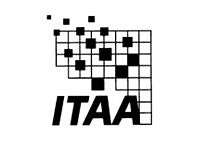Information Technology Association of America

The Information Technology Association of America (ITAA), formerly the Association of Data Processing Service Organizations (ADAPSO), was a leading industry trade group for information technology companies. The Association's membership contained most of the world's major Information and communications technology (ICT) firms, accounting for over 90% of ICT goods and services sold in North America.
History
Organizational meetings of what was initially called the Data Actuating Technical Association (DATA) began in 1960. In 1961, the Association of Data Processing Service Organizations (ADAPSO) was founded, and formally incorporated in 1962. Its first president was Romuald Slimak, who had worked on the UNIVAC I. Initially headquartered in Pennsylvania, ADAPSO moved to the Washington, DC area in 1978 to be closer to government policymakers and advocates. ADAPSO was renamed ITAA in 1991.
In March 2007 ITAA President Phil Bond expressed his desire in merging ITAA with another high tech trade association.[1] On January 17, 2008, ITAA announced that it had agreed to so-called "merger of equals" with the Government Electronics and Information Technology Association (GEIA), and that the combined association would retain the ITAA name.[2][3][4] Until earlier in the year GEIA had been an affiliate of EIA (a trade association formerly known as the Electronic Industries Alliance)[5] EIA has been very financially successful, unlike ITAA. GEIA is slated to share in the distribution over $50 million in assets resulting in the breakup of EIA . [The fall of EIA: What happened?[6] [7]
In 2008 the ITAA merged with the CyberSecurity Industry Alliance and the Government Electronics Industry Association.[8]
In 2009 the ITAA merged with the AeA (formerly the American Electronics Association)[9][10] to form TechAmerica. Hank Steininger was the last ITAA board chair prior to the merger.
Surveys
ITAA conducted surveys of CIOs.[11]
Real ID
ITAA actively lobbied on behalf of the funding for the Real ID.[12]
Some have asserted that Real ID will turn state driver’s licenses into a national identity card and impose numerous new burdens on taxpayers, citizens, immigrants, and state governments – while doing nothing to protect against terrorism.[13] As a result, it is stirring intense opposition from many groups across the political spectrum.[14] Critics have claimed that ITAA supports the national ID card because its member companies would benefit from financially from implementing the card.[15]
Publications
ITAA published a series of newsletters, beginning with ADAPSO News in the early 1960s. Its last regular newsletter, the ITAA E-LETTER,[16] covered issues of the networked economy, including information and telecommunications public policy, and the businesses of electronic commerce, Internet service and enhanced telecommunications service providers. The ITAA E-LETTER was distributed free of charge by electronic mail.[17]
Other ADAPSO and ITAA publications included ADAPSO Agenda (later ITAA Agenda), Computer Services: Official Journal of the Association of Data Processing Service Organizations, and Data.
References
- ↑ "TechAmerica : Where the Future Begins". Itaa.org. Retrieved 2010-03-04.
- ↑ "Groups Merge To Form Technology Association Of America". InformationWeek. Retrieved 2010-03-04.
- ↑ Nagesh, Gautham (2007-11-07). "Hard times push IT associations to consider merger". Government Executive. Retrieved 2011-12-19.
- ↑ "TechAmerica : Where the Future Begins". Itaa.org. Retrieved 2010-03-04.
- ↑ "Electronic Industries Alliance". EIA. Retrieved 2010-03-04.
- ↑ "The fall of EIA: What happened? - 9/4/2007 - Electronic Business". Edn.com. 2008-07-20. Retrieved 2010-03-04.
- ↑ "News". EIA. 2007-07-12. Retrieved 2010-03-04.
- ↑ http://www.techamerica.org/about/history/
- ↑ "AeA and ITAA to merge". Washington Business Journal. Dec 9, 2008. Retrieved Feb 3, 2013.
- ↑ http://www.techamerica.org/about/history/
- ↑ "Annual CIO Survey from Information Technology Association of America". Govtech.com. 2001-02-22. Retrieved 2010-03-04.
- ↑ Lipowicz, Alice (2007-09-25). "ITAA to Congress: cut a check for Real ID now". Washington Technology. Retrieved 2010-03-04.
- ↑ Jim Harper (2007-09-27). "AOL, Red Hat, and Yahoo Support a U.S. National ID". Techliberation.com. Retrieved 2010-03-04.
- ↑ "Real Nightmare". Real Nightmare. Retrieved 2010-03-04.
- ↑ Arrington, Michael (2007-09-28). "Conflicts Of Interest: Why Do Microsoft, AOL, Yahoo, Red Hat And Others Support The National ID Card?". Techcrunch.com. Retrieved 2010-03-04.
- ↑ "TechAmerica : Where the Future Begins". Itaa.org. Retrieved 2010-03-04.
- ↑ "TechAmerica : Where the Future Begins". Itaa.org. Retrieved 2010-03-04.
External links
- ITAA CALLS ON CONGRESS TO RAISE CAP FOR TEMPORARY WORKERS February 25, 1998 The Law Offices of Carl Shusterman website
- Labor Market in Flux: How Can States Respond to Outsourcing, Labor Shortages & Job Creation? 29-Apr-04 ITAA website newsroom
- E-Democracy: The Lowdown on E-Voting June 1, 2004 Issue of CIO Magazine
- World Information Technology & Services Alliance web site
- Council of Regional IT Associations web site
- ADAPSO and ITAA Records, 1960-1999, Charles Babbage Institute, University of Minnesota
- Oral history interview with Lawrence Schoenberg, Charles Babbage Institute, University of Minnesota. Schoenberg describes his role in ADAPSO and its successor ITAA, of which he served as Chairman of the Board in 1982.
- Oral history interview with Oscar Schachter, Charles Babbage Institute, University of Minnesota. Schachter discusses his extensive activities within ADAPSO.
- Two oral history interviews with Luanne Johnson, Charles Babbage Institute, University of Minnesota - one of the early women entrepreneurs in the computer software products industry, Luanne Johnson talks about her many years in leadership positions in ADAPSO which became Information Technology Association of America.
- Information Technology Association of America at SourceWatch